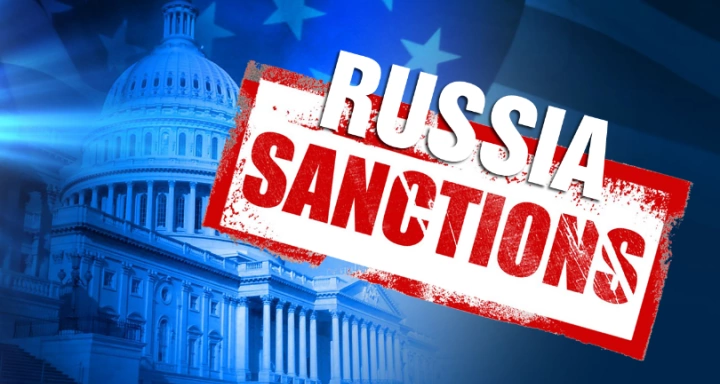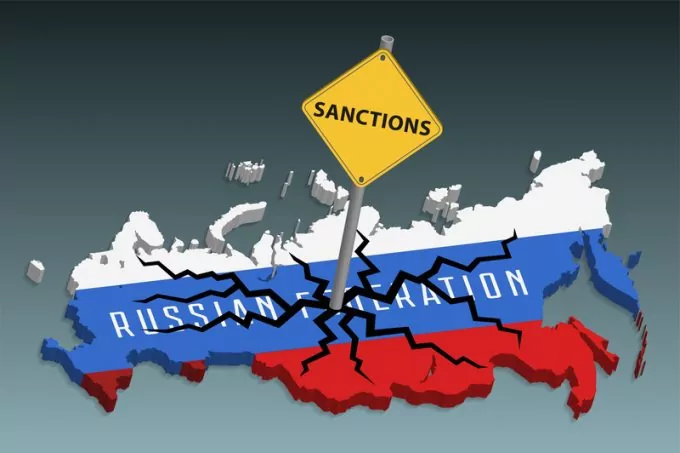
OFAC Russia sanctions
OFAC sanction Russia is a set of comprehensive economic and political measures. They aim to limit the resources available to Russian Federation authorities. They are a response to actions that threaten international security, the sovereignty of other states, and fundamental human rights. These sanctions cover a wide range of targets, including individuals, companies, banks, and all sectors of the Russian economy.
The introduction of sanctions has become one of the key tools of U.S. foreign policy and its allies to deter Russia from further violating international law. Let’s take a look at an OFAC Russia sanctions summary, the main presidential decrees, and the reasons for their imposition, as well as their impact on international relations.

Why OFAC Imposed Sanctions on Russia?
The primary reasons for including the Russian Federation in the OFAC sanctions list are related to its actions that, according to the international community, threaten the security, sovereignty, and stability of other nations.
Violations of Human Rights
Russia has been repeatedly accused of human rights violations both within its borders and internationally. These violations include the persecution of journalists, activists, and opposition figures who speak out against the ruling regime. The use of force against peaceful protesters and repression of political opponents have also been cited. These actions have led to international condemnation and the imposition of OFAC Russia-related sanctions.
Cyberattacks and Election Interference
Cyberattacks, including hacks of government and private systems as well as interference in elections, have become one of the reasons for the tightening of U.S. sanctions policy. Confirmed cases of interference in the U.S. presidential elections in 2016 and 2020 raised concerns in the international community and led to OFAC Russia sanctions.
Annexation of Crimea and the Invasion of Ukraine (2014–2022)
The annexation of Crimea in 2014 and Russia’s large-scale invasion of Ukraine in 2022 sparked widespread international protests. These actions were seen as violations of international law. This led to the imposition of significant economic and political sanctions against Russian organizations and individuals.
If you’re facing issues related to OFAC’s specially designated nationals list and sanctions, we recommend reaching out to the qualified attorneys at our international law firm. Our OFAC lawyers will help find the best solution to the problem, with minimal risks and expenses.
Executive Orders Governing OFAC Sanctions on Russia
The Office of Foreign Assets Control (OFAC) uses presidential executive orders as the primary tool to implement sanctions legally. Each of these orders targets different aspects of Russian policy and economy.
Next, we’ll provide a summary of OFAC Russia sanctions and the reasons behind the issuance of these orders.

Executive Order 14024 (April 2021)
The executive order signed by President Joe Biden in April 2021 is aimed at countering malicious actions by Russia. Examples include cyberattacks, election interference, and violations of international law. The order authorizes the blocking of assets belonging to individuals and entities involved in these actions. Sanctions particularly affect major financial institutions and technology companies.
Executive Order 14039 (August 2021)
President Biden signed this executive order in August 2021 to strengthen measures against Russia’s use of chemical weapons. This executive order expands sanctions against organizations and individuals involved in the development and dissemination of chemical weapons. It also targets those supporting regimes that use such means against their own citizens.
Executive Order 14066 (March 2022)
The decree issued in March 2022 was a response to the escalation of the conflict in Ukraine. It significantly impacted the country’s economy by restricting the export of Russian energy resources, including oil, natural gas, and coal. The decree was also aimed to provide reasonable reliance on the supply of Russian energy carriers to the international market.
Executive Order 14068 (March 2022)
In March 2022, President Biden signed an executive order imposing a ban on the import of certain Russian goods, including alcohol, seafood, and diamonds. The order aims to pressure the Russian Federation economy by limiting access to international markets for key export goods.
Executive Order 14071 (April 2022)
An executive order signed in April 2022 prohibits American companies from making new investments in the Russian Federation economy. Pursuant to Executive Order 14071 foreign financial institutions are restricted from providing services and technologies that could contribute to Russia’s economic development and national wealth fund. The order aims to inflict long-term damage on the country’s strategic economic sectors, and the Office of Foreign Assets Control (OFAC) will continue to use sanctions as a means of pressuring Russia for violations of international law, cyber threats, and acts of aggression. These measures underscore the necessity of adhering to international standards and laws. They also highlight the United States’ commitment to strengthening International stability.
Recent Updates on OFAC Sanctions on Russia
OFAC sanctions are regularly updated to adapt to changes in the international situation and to increase pressure on key sectors of the Russian Federation economy and the political elite.
These measures include expanding the OFAC sanctions list, tightening control over Russia’s financial services sector, and introducing new restrictions for strategically important industries.

Ban on Russian Uranium Imports
One of the most discussed measures has been the introduction of a ban on uranium imports to Russia. Uranium is a very important raw material for nuclear energy. Russia holds one of the leading positions in the world market for supplies. The ban is aimed at reducing dependence on Russian sources and supporting alternative suppliers. The implementation of such sanction programs could have a significant impact on the international nuclear industry and force many countries to reconsider their energy strategies.
Sanctions Targeting Kaspersky Lab
OFAC Russia sanctions were imposed on Kaspersky Lab due to allegations of posing a threat to the national security of the United States. These measures include a ban on the use of the company’s products by government institutions and organizations. U.S. authorities believe that the company’s software could be used for cyber espionage or cyberattacks. Additionally, the sanctions aim to limit the company’s access to international markets and technological partners.
Restrictions on the Moscow Exchange, National Settlement Depository, and Clearing Centers
OFAC Russia sanctions have also impacted the Moscow Exchange, the National Settlement Depository, and clearing centers. These restrictions hinder Russia’s access to international financial markets and complicate the execution of cross-border transactions.
The limitations undermine investor confidence in the Russian market and reduce the volume of foreign financial institutions and investments. They also increase the cost of doing business for Russian companies that rely on international financial instruments.
Sanctions Related to Navalny and the Ukraine Conflict
Sanctions related to the case of Alexey Navalny and the conflict in Ukraine target a wide range of individuals and organizations. These measures include freezing the assets of those involved in aggressive human rights violations and banning their entry into the U.S. The goal of the sanctions is to hold the guilty parties accountable and support international law. They also demonstrate U.S. solidarity with Russian civil society and political prisoners.
OFAC Russia Restrictions List
Financial Restrictions on Russian Assets
OFAC financial restrictions include asset blocking and a prohibition on conducting financial transactions. Regulatory acts adopted in relation to Russia include:
- Executive Order 14024 (April 2021) was aimed at countering Russian election interference and cyberattacks.
- The CAATSA law (2017) strengthened control over financial transactions involving Russian companies.
- Executive Order 13662 (March 2014) imposed sanctions in response to the annexation of Crimea and the situation in Ukraine.
Sector Sanctions on Russian Industries
OFAC sectoral sanctions against Russia target specific sectors of the economy and aim to restrict their access to technology and investments. These measures are applied to the energy, defense, and financial industries. The regulatory acts adopted in relation to Russia include:
- Executive Order 13661 (March 2014) was issued in response to actions threatening the sovereignty of Ukraine.
- Executive Order 14024 (April 2021) expanded the list of OFAC sectoral sanctions on Russia, extending restrictions.
- The CAATSA law (2017) supplemented these sanctions by regulating the export of technologies to significant sectors.
Restrictions on Russian Imports and Exports
Import and export restrictions include strict control over the movement of goods and technologies. The Export Control Reform Act of 2018 governs the export of strategic items, such as semiconductors and mining equipment. The Bureau of Industry and Security (BIS) rules pertain to export management and preventing the supply of dual-use products.
Individuals and Entities Targeted by OFAC Sanctions
OFAC sanctions are often targeted at specific individuals and organizations. The Global Magnitsky Act of 2016 provides measures against those involved in corruption and human rights abuses. Legislative acts adopted in relation to Russia include:
- Executive Order 14024 (April 2021) expands the list of individuals whose activities threaten international stability.
Consequences for Violating OFAC Russia Sanctions
Violating OFAC Russia sanctions carries serious consequences, including financial penalties and criminal prosecution. These measures ensure strict compliance with sanction policies, preventing financial support and transactions related to individuals or organizations under sanctions.
Civil penalties include significant fines for financial transactions that violate sanction policies. For example, companies may be required to pay multimillion-dollar fines for cooperating with sanctioned individuals or organizations. Such measures are applied even in cases of intentional violations if they result from insufficient due diligence on business partners. Moreover, imposed fines can be accompanied by reputational losses, negatively affecting the company’s official business.
Criminal penalties involve prosecution for the intentional violation of sanctions. Those found guilty could face prison time and substantial fines if their actions on certain transactions involving Russia have harmed U.S. national security or economy. For example, OFAC Russia sanctions evasion through the use of shell companies can lead to severe punishments. In addition, criminal prosecution may include a ban on conducting business in the U.S. and the seizure of assets related to the violation of the sanctions regime.
Contact our OFAC Sanctions Attorneys
In the context of increasingly complex international sanction regimes, professional support becomes a necessity. OFAC Russia sanctions can significantly impact your business operations, so seeking legal assistance in a timely manner can help avoid serious consequences. Our lawyers have a deep understanding of sanction legislation and are ready to provide support in resolving the most challenging issues.
If you’re dealing with OFAC Russia sanctions, our experts can help you understand their details, assess the risks, and develop a compliance strategy. We’ll analyze your business processes to identify which aspects of your activities may be subject to sanctions restrictions. This will not only help minimize potential losses but also adapt your strategy to meet international legal requirements.
Seeking advice from experts can help you avoid legal mistakes and boost your confidence in complying with sanctions regulations. We offer consultations on all types of sanctions legislation and are ready to protect your interests in any jurisdiction. Our goal is to ensure your business fully meets legislative requirements and to assist you in navigating the legal challenges associated with sanctions. Support from qualified professionals is your key to confidence in complex legal matters and sustainable business development.




